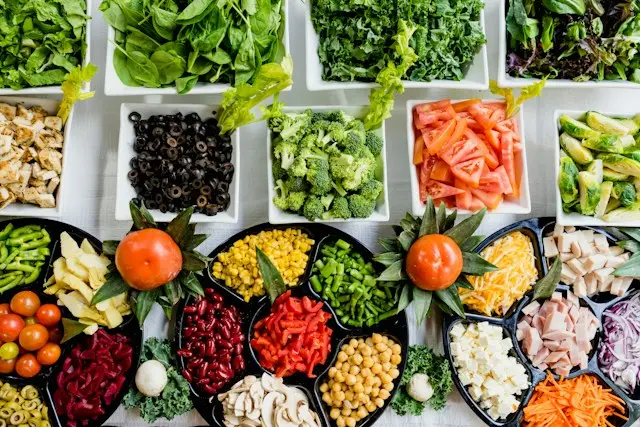Potential of Plant Based Foods proteins 9 super that contain the protein content of eggs. From quinoa, a complete protein package, to versatile tofu and protein-rich black beans. The nutritional values of lentils, chickpeas, edamame, hemp seeds, spinach, and chia seeds, each offering unique benefits beyond protein. Whether you’re a seasoned plant-based enthusiast or exploring a protein-rich diet, these alternatives provide a delicious and nutritious foundation for your meals.
Quinoa
Quinoa is a complete protein source. Packed with all nine essential amino acids, quinoa provides a nutritional profile that competes with eggs. Incorporating this ancient grain into your diet not only boosts protein intake but also brings a host of other essential nutrients to the table.
Lentils
Lentils, a staple in many cuisines, emerge as a top contender in the plant-based protein arena. With a high protein content per serving, lentils are a versatile addition to salads, soups, and various dishes. Their rich fiber content complements their protein prowess, contributing to a well-rounded and satisfying meal.
Chickpeas
Chickpeas, the foundation of beloved dishes like hummus, offer an impressive protein punch. Beyond their delightful taste and versatility, chickpeas contribute significantly to your daily protein requirements. Roasted, boiled, or blended into a savory dip, chickpeas prove that plant-based protein can be both delicious and nutritious.
Edamame
Edamame, young soybeans often found in Asian cuisine, present a vibrant and protein-rich option. Packed with essential amino acids, edamame makes for a satisfying snack or a delightful addition to stir-fries. Its versatility and nutritional density make it an excellent alternative to eggs for those seeking plant-based protein options.
Hemp Seeds
Hemp seeds, often overlooked, are a tiny powerhouse of nutrients, including protein. These little seeds pack a substantial protein content, making them an ideal addition to salads, smoothies, or yogurt. Additionally, hemp seeds offer a generous dose of omega-3 fatty acids, contributing to overall heart health.
Spinach
Spinach, a leafy green often associated with iron, also surprises with its protein content. Incorporating spinach into your diet not only provides a wealth of vitamins and minerals but also adds a considerable protein boost. Whether sautéed, blended into smoothies, or added to salads, spinach is a versatile and nutritious choice.
Tofu
Tofu in Plant Based Foods, derived from soybeans, has long been a staple in vegetarian and vegan diets. Its adaptability in absorbing flavors makes it a culinary chameleon, while its protein content competes favorably with eggs. Grilled, stir-fried, or blended into creamy desserts, tofu offers a protein-rich foundation for diverse culinary creations.
Chia Seeds
Chia seeds in Plant Based Foods, known for their exceptional omega-3 fatty acid content, also contribute significantly to your protein intake. These tiny seeds, when soaked, develop a gel-like consistency, making them a fantastic addition to puddings, smoothies, or as a topping for yogurt. Chia seeds prove that good things come in small packages, especially when it comes to plant-based protein.
Black Beans
Black beans, a staple in many cuisines, boast a robust nutritional profile that includes both protein and fiber. This dynamic duo not only promotes satiety but also supports digestive health. Whether added to soups, salads, or main dishes, black beans offer a satisfying and protein-rich alternative to eggs.
Conclusion
Plant Based Foods are vast and varied, providing a multitude of options that contain the protein content of eggs. From quinoa and lentils to tofu and chia seeds, these nutrient-dense alternatives cater to diverse tastes and dietary preferences. To increase your protein intake, consider incorporating these plant-based powerhouses into your meals for a wholesome and satisfying experience. Increase your protein intake with these plant-powered options, proving plant-based nutrition is not only vast but also a wholesome and satisfying dietary experience.
FAQs
Are plant-based proteins as complete as those found in eggs?
Absolutely. Quinoa, tofu, and chia seeds, among others, offer a full spectrum of essential amino acids, making them complete protein sources.
How do lentils and chickpeas compare to eggs in terms of protein content?
Lentils and chickpeas stand toe-to-toe with eggs, providing a robust protein punch. They are versatile additions to various dishes, ensuring a satisfying protein intake.
Can spinach and other leafy greens really be a significant source of protein?
Surprisingly, yes. Spinach, rich in protein and various nutrients, proves that leafy greens can contribute substantially to your daily protein requirements.
